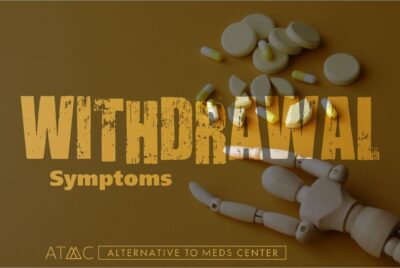1. FDA label Ambien CR Approval 1992 [cited 2022 Mar 29]
2. “FDA Requires stronger warnings about rare but serious incidents related to certain prescription insomnia medications” FDA news release issued 2019 Apr 30 [cited 2022 Mar 29]
3. Wilkinson CJ, “The abuse potential of zolpidem administered alone and with alcohol.” Pharmacol Biochem Behav. 1998 May;60(1):193-202. doi: 10.1016/s0091-3057(97)00584-4. PMID: 9610942. [cited 2022 Mar 29]
4. Sleep Advisor authors, “How Do You Get Off Sleeping Pills – Symptoms and What to Expect.” June 7, 2020 [cited 2022 Mar 29]
5. Reichner C, “Insomnia and sleep deficiency in pregnancy.” Obstet Med 2015 Dec; 8(4): 168-171 [published onlin 2015 Sept 21) doi: 10.1177/1753495X15600572 PMID 27512475 [cited 2022 Mar 29]
6. Monti JM, Spence DW, Buttoo K, Pandi-Perumal SR. Zolpidem’s use for insomnia. Asian J Psychiatr. 2017 Feb;25:79-90. doi: 10.1016/j.ajp.2016.10.006. Epub 2016 Oct 12. PMID: 28262178. [cited 2022 Mar 29]
7. FDA, “Questions and Answers: Risk of next-morning impairment after use of insomnia drugs.” Reviewed 2018 [cited 2022 Mar 29]
8. Lähteenmäki R, Neuvonen PJ, Puustinen J, Vahlberg T, Partinen M, Räihä I, Kivelä SL. Withdrawal from long-term use of zopiclone, zolpidem and temazepam may improve perceived sleep and quality of life in older adults with primary insomnia. Basic Clin Pharmacol Toxicol. 2019 Mar;124(3):330-340. doi: 10.1111/bcpt.13144. Epub 2018 Dec 3. PMID: 30295409. [cited 2022 Mar 29]
9. Stallman HM, Kohler M, White J. Medication induced sleepwalking: A systematic review. Sleep Med Rev. 2018 Feb;37:105-113. doi: 10.1016/j.smrv.2017.01.005. Epub 2017 Jan 29. PMID: 28363449. [cited 2022 Mar 29]
10. Westermeyer J, Carr TM. Zolpidem-Associated Consequences: An Updated Literature Review With Case Reports. J Nerv Ment Dis. 2020 Jan;208(1):28-32. doi: 10.1097/NMD.0000000000001074. PMID: 31834190. [cited 2022 Mar 29]
11. Mattoo SK, Gaur N, Das PP. Zolpidem withdrawal delirium. Indian J Pharmacol. 2011 Nov;43(6):729-30. doi: 10.4103/0253-7613.89838. PMID: 22144786; PMCID: PMC3229797. [cited 2022 Mar 29]
12. Victorri-Vigneau C, Dailly E, Veyrac G, Jolliet P. Evidence of zolpidem abuse and dependence: results of the French Centre for Evaluation and Information on Pharmacodependence (CEIP) network survey. Br J Clin Pharmacol. 2007 Aug;64(2):198-209. doi: 10.1111/j.1365-2125.2007.02861.x. Epub 2007 Feb 23. PMID: 17324242; PMCID: PMC2000636. [cited 2022 Mar 29]
13. Bouchette D, Akhondi H, Quick J. Zolpidem. [Updated 2021 Jul 25]. In: StatPearls [Internet]. Treasure Island (FL): StatPearls Publishing; 2021 Jan-. Available from: https://www.ncbi.nlm.nih.gov/books/NBK442008/ [cited 2022 Mar 29]
14. Joester J, Vogler CM, Chang K, Hilmer SN. Hypnosedative use and predictors of successful withdrawal in new patients attending a falls clinic: a retrospective, cohort study. Drugs Aging. 2010 Nov 1;27(11):915-24. doi: 10.2165/11584480-000000000-00000. PMID: 20964465. [cited 2022 Mar 29]
15. Aggarwal A, Sharma D, “Zolpidem Withdrawal Delirium – A Case Report” Journal of Neuropsychiatry and Clinical Neurosciences https://doi.org/10.1176/jnp.2010.22.4.451.e27 [online] [cited 2022 Mar 29]
16. FDA label Ambien (zolpidem tartrate) tablets [online] [cited 2022 Mar 29]
17. Sharan P, Bharadwaj R, Grover S, Padhy SK, Kumar V, Singh J. Dependence syndrome and intoxication delirium associated with zolpidem. Natl Med J India. 2007 Jul-Aug;20(4):180-1. PMID: 18085123. [cited 2022 Mar 29]
18. Hajak G, Clarenbach P, Fischer W, Rodenbeck A, Bandelow B, Broocks A, Rüther E. Rebound insomnia after hypnotic withdrawal in insomniac outpatients. Eur Arch Psychiatry Clin Neurosci. 1998;248(3):148-56. doi: 10.1007/s004060050032. PMID: 9728734. [cited 2022 Mar 29]
19. Anilanmert B, Çavuş F, Narin I, Cengiz S, Sertler Ş, Özdemir AA, Açikkol M. Simultaneous analysis method for GHB, ketamine, norketamine, phenobarbital, thiopental, zolpidem, zopiclone and phenytoin in urine, using C18 poroshell column. J Chromatogr B Analyt Technol Biomed Life Sci. 2016 Jun 1;1022:230-241. doi: 10.1016/j.jchromb.2016.03.040. Epub 2016 Apr 9. PMID: 27107852. [cited 2022 Mar 29]
20. Brandt J, Leong C. Benzodiazepines and Z-Drugs: An Updated Review of Major Adverse Outcomes Reported on in Epidemiologic Research. Drugs R D. 2017;17(4):493-507. doi:10.1007/s40268-017-0207-7 [cited 2022 Mar 29]
21. Victorri-Vigneau C, Dailly E, Veyrac G, Jolliet P. Evidence of zolpidem abuse and dependence: results of the French Centre for Evaluation and Information on Pharmacodependence (CEIP) network survey. Br J Clin Pharmacol. 2007;64(2):198-209. doi:10.1111/j.1365-2125.2007.02861.x [cited 2022 Mar 29]
22. Piergies AA, Sainati S, Roth-Schechter B. Lack of cross-reactivity of Ambien (zolpidem) with drugs in standard urine drug screens. Arch Pathol Lab Med. 1997 Apr;121(4):392-4. PMID: 9140309. [cited 2022 Aug 24]
23. Chèze M, Duffort G, Deveaux M, Pépin G. Hair analysis by liquid chromatography-tandem mass spectrometry in toxicological investigation of drug-facilitated crimes: report of 128 cases over the period June 2003-May 2004 in metropolitan Paris. Forensic Sci Int. 2005 Oct 4;153(1):3-10. doi: 10.1016/j.forsciint.2005.04.021. PMID: 15922526. [cited 2022 Aug 24]
24. Orsolini L, Chiappini S, Grandinetti P, Bruschi A, Testa R, Provenzano A, Berardis D, Volpe U. ‘Z-trip’? A Comprehensive Overview and a Case-series of Zolpidem Misuse. Clin Psychopharmacol Neurosci. 2021 May 31;19(2):367-387. doi: 10.9758/cpn.2021.19.2.367. PMID: 33888666; PMCID: PMC8077048. [cited 2022 Aug 24]
25. Hajak G, Müller WE, Wittchen HU, Pittrow D, Kirch W. Abuse and dependence potential for the non-benzodiazepine hypnotics zolpidem and zopiclone: a review of case reports and epidemiological data. Addiction. 2003 Oct;98(10):1371-8. doi: 10.1046/j.1360-0443.2003.00491.x. PMID: 14519173. [cited 2022 Aug 24]
26. Licata SC, Mashhoon Y, Maclean RR, Lukas SE. Modest abuse-related subjective effects of zolpidem in drug-naive volunteers. Behav Pharmacol. 2011;22(2):160-166. doi:10.1097/FBP.0b013e328343d78a [cited 2022 Aug 24]
27. Shih HI, Lin CC, Tu YF, Chang CM, Hsu HC, Chi CH, Kao CH. An increased risk of reversible dementia may occur after zolpidem derivative use in the elderly population: a population-based case-control study. Medicine (Baltimore). 2015 May;94(17):e809. doi: 10.1097/MD.0000000000000809. Erratum in: Medicine (Baltimore). 2016 Jun 19;94(24):1. PMID: 25929937; PMCID: PMC4603066. [cited 2022 Aug 24]
28. Cheng HT, Lin FJ, Erickson SR, Hong JL, Wu CH. The Association Between the Use of Zolpidem and the Risk of Alzheimer’s Disease Among Older People. J Am Geriatr Soc. 2017 Nov;65(11):2488-2495. doi: 10.1111/jgs.15018. Epub 2017 Sep 7. PMID: 28884784. [cited 2022 Aug 24]
29. Victorri-Vigneau C, Gérardin M, Rousselet M, Guerlais M, Grall-Bronnec M, Jolliet P. An update on zolpidem abuse and dependence. J Addict Dis. 2014;33(1):15-23. doi: 10.1080/10550887.2014.882725. PMID: 24467433. [cited 2022 Aug 24]
30. Victorri-Vigneau C, Dailly E, Veyrac G, Jolliet P. Evidence of zolpidem abuse and dependence: results of the French Centre for Evaluation and Information on Pharmacodependence (CEIP) network survey. Br J Clin Pharmacol. 2007 Aug;64(2):198-209. doi: 10.1111/j.1365-2125.2007.02861.x. Epub 2007 Feb 23. PMID: 17324242; PMCID: PMC2000636. [citred 2022 Aug 24]
31. Sethi PK, Khandelwal DC. Zolpidem at supratherapeutic doses can cause drug abuse, dependence and withdrawal seizure. J Assoc Physicians India. 2005 Feb;53:139-40. PMID: 15847035. [cited 2022 Aug 24]
32. Madea B, Musshoff F. Knock-out drugs: their prevalence, modes of action, and means of detection. Dtsch Arztebl Int. 2009;106(20):341-347. doi:10.3238/arztebl.2009.0341 [cited 2022 Aug 24]
33. Cha EJ, Jeon HJ. The effect of COVID-19 pandemic on sleep-related problems in adults and elderly citizens: An infodemiology study using relative search volume data. PLoS One. 2022 Jul 12;17(7):e0271059. doi: 10.1371/journal.pone.0271059. PMID: 35819941; PMCID: PMC9275680. [cited 2023 May 17]

 Ambien is a drug that may require inpatient care for proper recovery and safe
Ambien is a drug that may require inpatient care for proper recovery and safe  One of the most concerning Ambien withdrawal effects is rebound insomnia. Lack of sleep can become a problematic, repeating loop, especially without proper protocols in place during and after Ambien withdrawal.
One of the most concerning Ambien withdrawal effects is rebound insomnia. Lack of sleep can become a problematic, repeating loop, especially without proper protocols in place during and after Ambien withdrawal.







